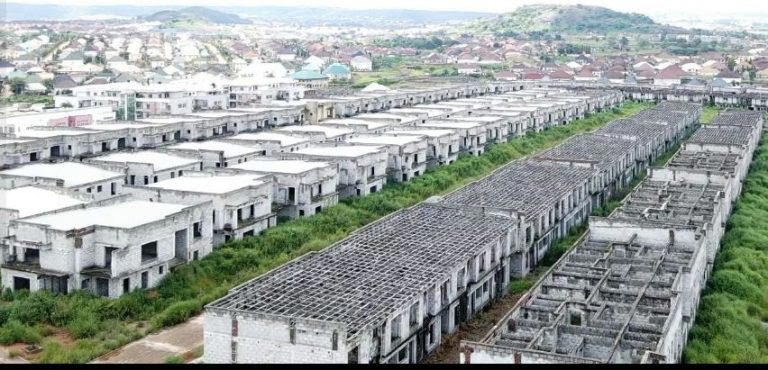News | Events | Digital PR | Advertising
Court Orders Final Forfeiture of Abuja Estate in EFCC’s Largest Asset Recovery

On Monday, December 2, 2024, Justice Jude Onwuegbuzie ruled in favor of the Economic and Financial Crimes Commission (EFCC) for the final forfeiture of a massive estate in Abuja. Spanning 150,500 square meters and comprising 753 duplexes and other apartments, the estate, located on Plot 109, Cadastral Zone C09, Lokogoma District, is the largest asset ever recovered by the EFCC since its establishment in 2003.
The forfeiture was made under the EFCC’s mandate to ensure that proceeds from corruption and fraudulent activities are not enjoyed by those involved. The property, linked to a former senior government official under investigation, was forfeited to the federal government following Section 17 of the Advance Fee Fraud and Other Fraud Related Offences Act, 2006 and Section 44 (2)(b) of the 1999 Constitution.
In his ruling, Justice Onwuegbuzie stated that the respondent failed to justify ownership of the property. He held:
“The respondent has not shown cause as to why the property, reasonably suspected to have been acquired with proceeds of unlawful activities, should not be forfeited. The property is hereby finally forfeited to the federal government.”
Road to Forfeiture
The process began with an interim forfeiture order secured on November 1, 2024, before the same judge. The final forfeiture marks a significant step in depriving the suspect of the proceeds of crime and emphasizes the EFCC’s commitment to tackling economic and financial crimes.
The Commission’s actions were supported by Part 2, Section 7 of the EFCC Establishment Act, which empowers the EFCC to investigate individuals whose lifestyles and assets are inconsistent with their legitimate income sources.
EFCC’s Focus on Asset Recovery
The EFCC Chairman, Mr. Ola Olukoyede, has repeatedly emphasized the importance of asset recovery in the fight against corruption. Addressing the House of Representatives Committee on Anti-Corruption recently, he stated:
“Recovering stolen assets is a pivotal strategy in the fight against corruption. When we begin investigations, we simultaneously initiate asset tracing to deprive suspects of their illicit gains. Allowing them access to these proceeds enables them to fight back, so our strategy has evolved to track and recover assets early in the process.”
The EFCC’s Establishment Act underscores the significance of asset recovery. It mandates the Commission to apply for interim and final forfeiture orders for assets suspected to be proceeds of crime. The forfeiture of the Abuja estate followed these prescribed legal procedures, reinforcing the Commission’s commitment to accountability and transparency.
A Landmark Achievement
This recovery signifies a milestone for the EFCC and demonstrates President Bola Ahmed Tinubu’s commitment to the anti-corruption agenda. The case not only highlights the importance of asset forfeiture in curbing corruption but also showcases the EFCC’s evolving strategies in combating financial crimes.
Explore more
Scientists Research Nigeria’s Okra, Maize, Four Other Crops During NASA’s Space Mission
International astronauts will research six indigenous Nigerian crops and seeds during the...
President Trump Orders Pharmaceutical Companies To Cut Drug Prices Within 60 Days
President Donald Trump on Thursday said he asked major pharmaceutical companies to...
Microsoft To Become The Next $4 Trillion Company
Microsoft (MSFT.O), opens new tab soared past $4 trillion in market valuation...
Importers Slash Petrol Prices Below Dangote Rates Amid Rising Market Competition
Competition has hit Nigeria’s petroleum sector as fuel importers slash petrol prices...












Leave a comment